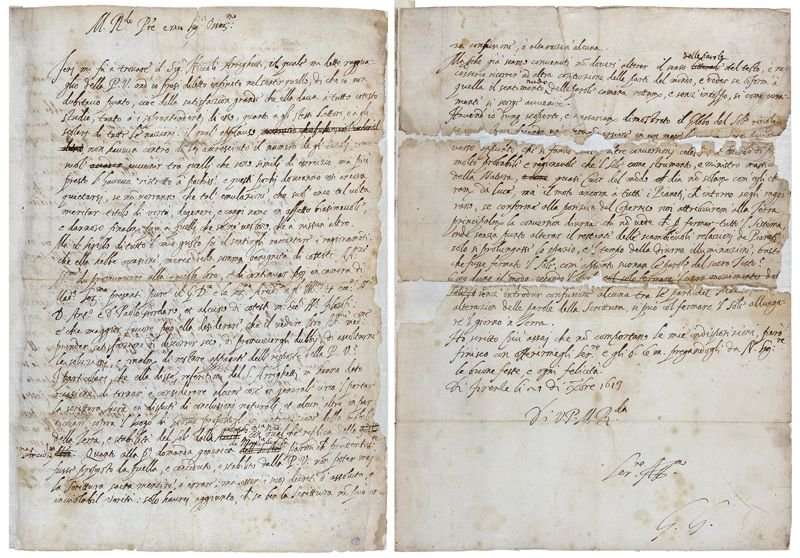September 26, 2018 weblog
Long lost Galileo letter found at Royal Society library

Nature journalist Alison Abbott has published a News and Comment piece in the journal detailing the finding of a letter in a Royal Society library purported to have been written by famed early scientist Galileo Galilei. The letter is significant because it offers proof of an attempt by the scientist to play down his arguments regarding controversial astronomy ideas.
Galileo is known for discoveries he made using one of the earliest telescopes—and for fighting with the Catholic church about the position of the sun and the planets. His studies convinced him that Nicolaus Copernicus had been right 100 years earlier—the Earth revolved around the sun, not the other way around. After he published a paper titled "Dialogue Concerning the Two Chief World Systems," the Inquisition of the Catholic Church sentenced him to house arrest for the final nine years of his life.
The circumstances of his initial troubles with the church are curious, however, with regard to the disappearance of a letter he wrote to a friend and colleague almost 20 years earlier. In that letter, he spelled out his views regarding the placement of the sun and planets and his belief that certain sections of the Bible regarding the place of the Earth in the universe should not be taken literally. The letter made it into the hands of a man named Niccolò Lorini who passed a copy of it to church authorities. Worried that the letter might get him into trouble, Galileo edited certain sections of the original letter to make it more palatable and sent it to a church official, claiming that Lorini had doctored his note. But then the original edited letter was lost to history. Without it, historians have argued about whether Galileo tried to prevent trouble by diluting his arguments. Now, that argument seems to have been settled with the discovery of the original letter.
The letter was found by Salvatore Ricciardo of the University of Bergamo. He was browsing through a catalog at a Royal Society library when he came upon the letter and immediately recognized its significance. Initial testing suggests that it is authentic—Galileo's original letter with parts crossed out and new words added as he attempted to soften his arguments.
More information: Alison Abbott. Discovery of Galileo's long-lost letter shows he edited his heretical ideas to fool the Inquisition, Nature (2018). DOI: 10.1038/d41586-018-06769-4
Journal information: Nature
© 2018 Phys.org
















